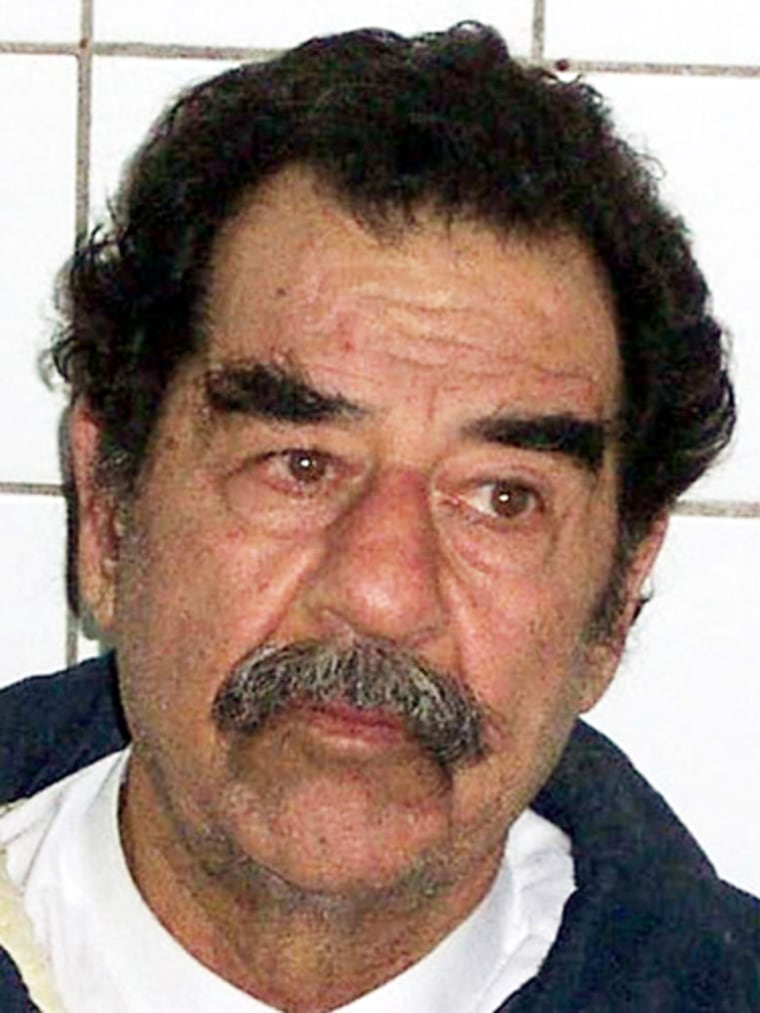The United States plans to turn over legal, but not physical, custody of Saddam Hussein and some other prisoners to the Iraqi interim government soon after it takes over on June 30, a senior official said on Tuesday.
He said Saddam and others would eventually face trial as war criminals before a special Iraqi tribunal set up last year.
“We understand the importance of transferring the high-value detainees to the Iraqi interim government upon their request, which we anticipate will be received shortly after July 1,” the official in Iraq’s U.S.-led administration said.
“Because the Iraqi interim government is not currently in a position to safeguard these detainees, at least in large numbers, our current plan calls for the transfer of legal responsibility over a certain number of high-profile detainees ... while physical custody will remain with the multinational force in Iraq,” he told reporters.
U.S. forces captured Saddam in December from a hole where he had been hiding near his hometown of Tikrit. Designated by Washington as a prisoner of war, the former dictator has been held at an undisclosed location in Iraq since then.
Under 50 POWs held
The official, who asked not to be named, confirmed that Saddam would be among the first group to be legally handed over to the interim government after the U.S.-led occupation formally ends on June 30. It had not been decided how many others would be transferred in the same way.
The official said Saddam and other detainees handed over legally to the new government would then become “subject to Iraqi due process, including the right to speedy trial, the right to counsel and the right to have judicially issued arrest warrants in place to authorize continued detention.”
The U.S. military holds fewer than 50 prisoners of war, including Saddam, along with several thousand detainees held in connection with guerrilla attacks in Iraq, or on suspicion they could pose a threat to the country’s security.
The fate of Saddam and his Baathist cohorts is a sensitive issue in a country he ruled with an iron hand for 24 years until the U.S.-led invasion that overthrew him on April 9 last year.
“They will be entitled to Iraqi due process protections and will be prepared in accordance with Iraqi law for trial as war criminals before the Iraqi Special Tribunal,” the official said.
Death penalty possible
He did not say if the death penalty, suspended during the U.S.-British occupation, might apply if they are convicted.
Salem Chalabi, a lawyer leading the work of the special tribunal, has said those convicted could face the death penalty if the interim government decides to restore it.
Saddam has not yet been charged but Iraqis accuse him of a catalogue of crimes that include poison gas attacks on Kurds, the killing of thousands of people during Kurdish and Shiite uprisings and the systematic use of torture.
Iraq’s interim Prime Minister Iyad Allawi said last week he expected Saddam and his aides to be handed over soon for trial.
International human rights groups have argued that the end of occupation will signal that international conflict in Iraq is over and prisoners of war must be released or charged.
The United States says a U.N. Security Council resolution adopted this month authorizes the multinational force to seize and detain suspects for security reasons after June 30.
